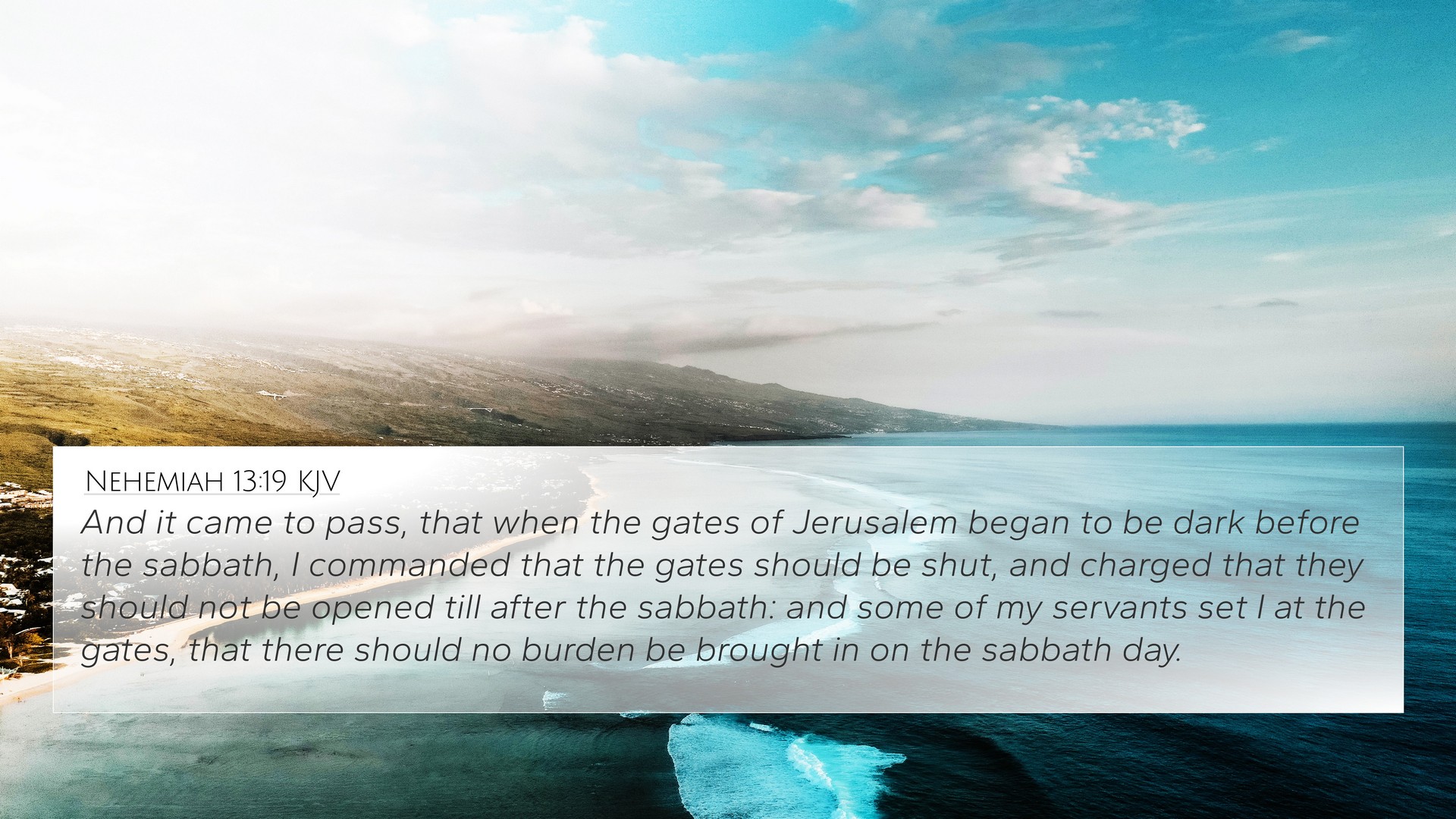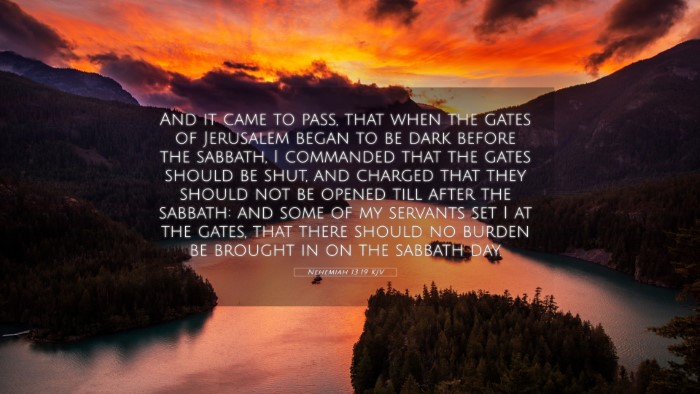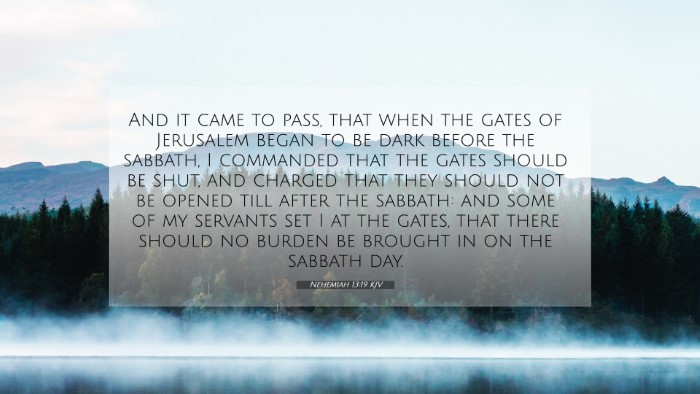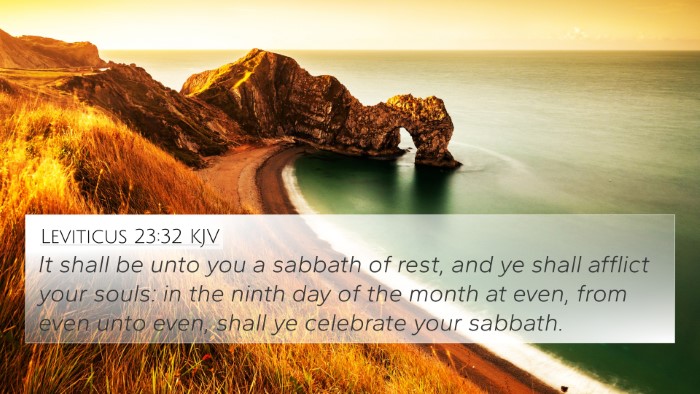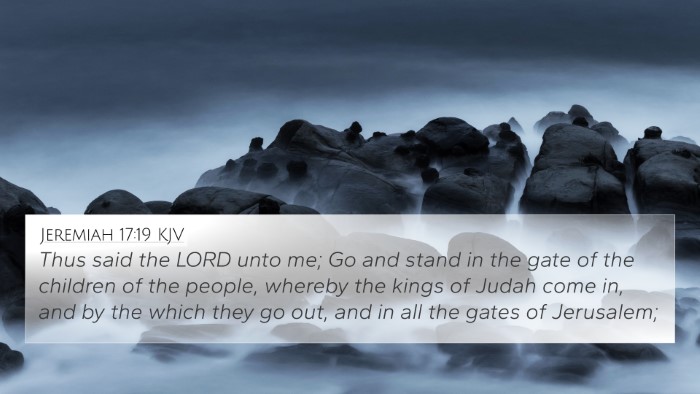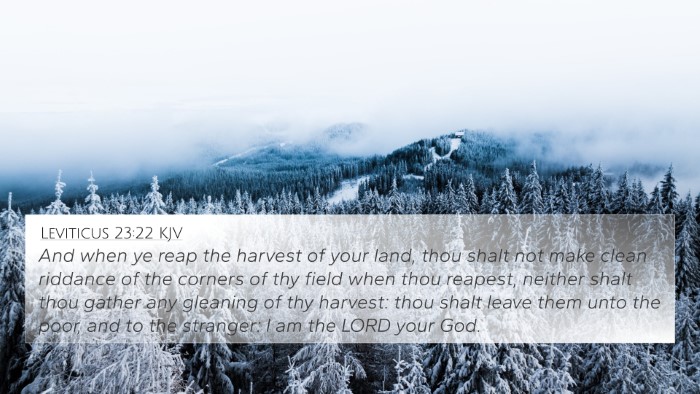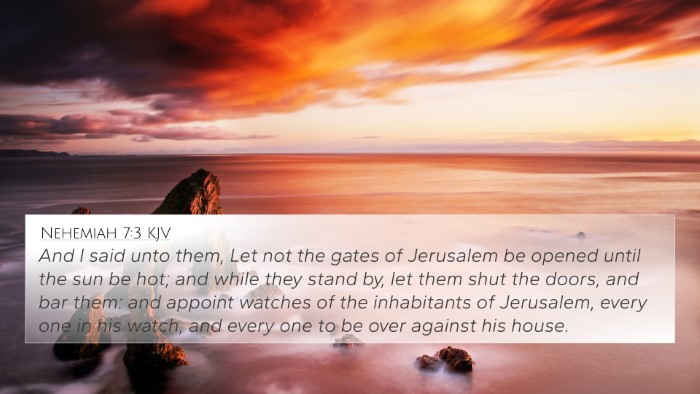Nehemiah 13:19 - Summary and Interpretation
Nehemiah 13:19 states: "And it came to pass, that when the gates of Jerusalem began to be dark before the sabbath, I commanded that the gates should be shut, and charged that they should not be opened till after the sabbath: and some of my servants set I at the gates, that there should no burden be brought in on the sabbath day." This verse highlights Nehemiah's commitment to observing the Sabbath and maintaining the holiness of the city of Jerusalem.
Insights from Commentaries
Matthew Henry's Commentary:
- Observance of the Sabbath: Nehemiah recognized the importance of the Sabbath as a day of rest ordained by God (Exodus 20:8-11). He took measures to ensure that the gates of the city were closed to prevent any work from being done during this sacred time.
- Watchfulness and Leadership: His actions reflect a leader's responsibility to guide his people in religious observance. By stationing guards, he demonstrated diligence in enforcing the law and protecting the sanctity of the Sabbath.
- Restoration of Jerusalem: This command is part of Nehemiah's broader reform efforts to restore Jerusalem's spiritual integrity following the return from Babylonian exile.
Albert Barnes' Notes on the Bible:
- Prohibition of Work: Barnes notes that Nehemiah's directive serves to highlight the significance of the Sabbath as a time set apart for rest and worship, emphasizing the importance of boundaries regarding work and commerce.
- Preventing Commerce on the Sabbath: The shutting of the gates signifies a proactive approach to prevent any commercial activities that might distract from the observance of the day.
- Connection to Earlier Laws: This passage links back to earlier covenant laws where Israelites were commanded to refrain from labor on the Sabbath (Exodus 31:13), reinforcing the covenant relationship with God.
Adam Clarke's Commentary:
- Importance of the Sabbatical Law: Clarke discusses the significance of adhering to the Sabbatical law in promoting spiritual growth within the community.
- Community Responsibility: The involvement of Nehemiah’s servants in guarding the gates highlights communal responsibility in observing God’s commandments.
- Restoration of Worship: Clarke posits that Nehemiah’s leadership was essential for the revival of true worship among the people of Jerusalem, fostering a devotion that had waned during exile.
Related Bible Cross-References
- Exodus 20:8-11: The commandment to remember the Sabbath day and keep it holy.
- Nehemiah 10:31: Agreements made by the people to not trade on the Sabbath.
- Isaiah 58:13-14: A call to honor the Sabbath and delight in the Lord.
- Jeremiah 17:21-22: God's warning against carrying burdens on the Sabbath.
- Deuteronomy 5:12-15: The command to observe the Sabbath in remembrance of the Exodus.
- Mark 2:27: Jesus emphasizes the Sabbath’s purpose for man, not man for the Sabbath.
- Hebrews 4:9: A promise of rest remains for the people of God, linking New Testament themes with Old Testament observance.
Thematic Connections and Application
Nehemiah 13:19 offers profound insights into the importance of religious observance and community leadership. It encourages believers today to reflect on their commitment to honoring God’s commandments, emphasizing the necessity of rest as a spiritual practice. By examining this verse through the lens of cross-referencing with other scripture, we gain a richer understanding of its implications for both ancient and contemporary faith practices.
In Conclusion
Understanding Nehemiah 13:19 involves more than a surface reading; it calls for a deeper exploration of the connections between Biblical texts, encouraging a holistic approach to scripture study. Such analysis affirms that observance of the Sabbath is not merely an Old Testament issue but remains significant in the life of believers today. By utilizing tools for Bible cross-referencing, one can uncover rich inter-Biblical dialogue and appreciate the continuity of God’s message throughout the ages.
In summary, studying Nehemiah 13:19 in conjunction with its related verses enriches one’s understanding of the importance of Sabbath observance and the responsibilities of leadership in faith communities. As you engage in your own Bible study, consider how cross-referencing thematic connections can illuminate your understanding of scripture.
